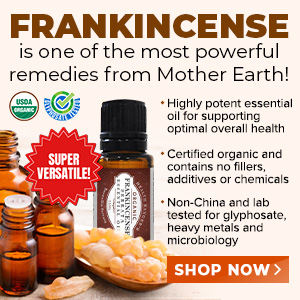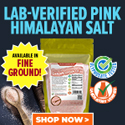
The Baobab Tree or the Tree of Life (press release)
Monday, July 10, 2006 by: NewsTarget
Tags: health news, Natural News, nutrition
- Oncologist warns of ‘terrifyingly aggressive’ cancers in children, linked to immune suppression from COVID vaccines
- NIH study, buried for decades, reveals that Flu Shots INCREASE elderly deaths, not prevent them
- COVID-19 scandal linked to CANCER SURGE: Billionaire researcher sounds alarm
- Musk targets “strangely wealthy” lawmakers in DOGE probe, names Pelosi, McConnell, Schumer
- Ancient kitchen secrets REVEALED: How garlic, ginger and green onions fight cancer and heart disease
- DARPA: The shadowy innovator behind the world’s most advanced military technologies
- Millionaire fitness coach charged in Tesla vandalism incident as anti-Musk attacks escalate
- “Ethically sourced” human “bodyoids” could usher in a new era of medical exploitation, raising disturbing ethical questions
- Newly released JFK files reveal Pentagon's role in creating Lyme disease and covid in the same lab
- European Court of Justice: Healthcare professionals who promoted or administered COVID-19 vaccines are CRIMINALLY LIABLE for any harm caused
- Britain’s descent into police state censorship: Parents raided for questioning their daughter’s school system online
- RFK Jr. is pushing Big Pharma ad ban - and corporate media is panicking
- Tackling the rubber waste crisis: Groundbreaking study reveals eco-friendly method to recycle tires
- Homesteading Boom: How families are escaping cities to grow their own food
- Joseph Farrell’s “The Cosmic War”: Did an interplanetary conflict reshape the solar system?
- NYT admits U.S. ran Ukraine war operations-Russia's victory exposes obsolete NATO tactics, says Mike Adams
- Utah governor allows ban on LGBT pride flags in public buildings and schools, will take effect without his signature
- Civil war is here – Multiple events, from conservatives being “swatted,” to attacks against Telsa owners, happening across America as Dem politicians are telling supporters to ‘fight in the streets”
- Newly released JFK files reveal Pentagon's role in creating Lyme disease and covid in the same lab
- CDC finally halts $11 billion COVID funding scam as health officials admit the ‘pandemic’ was a fraud
- Analysis: The coming economic collapse, a mass uprising and Trump's three secret weapons to halt the growing revolt
- Kiss Your Genetic Privacy Good-Bye! 23andMe Gets Green Light to Sell Your Intimate Genetic Details to Anyone They Want
- Dr. Suzanne Humphries makes bombshell appearance on Joe Rogan podcast, exposing vaccine industry deception back to POLIOMYELITIS
- DEADLY DECEPTION: How COVID vaccines increased mortality rates and why authorities hid the truth
- Woman contracts WORLD'S DEADLIEST VIRUS after unknowingly being given the WRONG VACCINE
- Oncologist warns of ‘terrifyingly aggressive’ cancers in children, linked to immune suppression from COVID vaccines
- Here are TEN all-natural ways to protect your garden without using harmful chemicals
- Black cumin seed oil emerges as a powerful ally against breast cancer and chronic inflammation
- The hidden dangers in your kitchen: How cooking methods impact diabetes, cancer and aging
- Trump's greatest betrayal so far: Accelerating Middle East wars, silencing dissent, and serving Zionist masters
- Senate Democrats deny censorship industrial complex existed, defend government's role in silencing dissent
- Sugar-free deception: Artificial sweeteners hijack hunger signals, fuel obesity epidemic, study warns
- “Independent” anti-Russia outlet MEDUZA faces COLLAPSE as US funding dries up
- NIH study, buried for decades, reveals that Flu Shots INCREASE elderly deaths, not prevent them
- The Health Ranger releases “Vaccine Zombie” song and music video, using AI-animated zombies for the music video
- Discovery of vast underground city beneath Giza pyramids challenges human history
- Newly released JFK files reveal Pentagon's role in creating Lyme disease and covid in the same lab
- California's social media censorship law struck down: A victory for free speech or a threat to online safety?
- EPA advisor admits the agency is funneling billions to climate groups ahead of Trump’s return to White House
- The Health Ranger releases “Vaccine Zombie” song and music video, using AI-animated zombies for the music video
- Dr. Mike Yeadon releases 15-minute testimony - WATCH - about genocidal intent of COVID “vaccines”
- Florida takes a stand: DeSantis proposes permanent ban on mRNA vaccine mandates
- Mike Adams releases country western hit single: Goin’ Back in Time is Comin’ Home
- “Why we influenced the 2020 elections”: Facebook files reveal the coordinated effort to bury the Hunter Biden laptop story
- Unpacking the Lies That We’ve Been Fed – new song and music video released by Mike Adams, the Health Ranger
- House Intelligence Committee calls for the ARREST and PROSECUTION of Dr. Anthony Fauci
- The pandemic as a tool for INDOCTRINATION: Understanding “The Indoctrinated Brain” by Dr. Michael Nehls
- Rep. Nancy Mace introduces bill to ban biological males from female facilities on federal property
- Mike Adams releases music poetry sensation: A Child of God
- Sugarcane extract superior to cholesterol-lowering drugs?
- Survival 101: Effective EMF blocking techniques
- Michigan sheriff announces criminal investigation into 2020 election crimes, Dominion Voting Systems
- Peter Rost exposes Big Pharma corruption in his book “The Whistleblower: Confessions of a Healthcare Hitman”
- Migrants are taking advantage of recent hurricanes to scam residents and loot their homes
- Red Cross issues warning to stop blood plasma donations from vaccinated people
- Scientists confirm: GENIUS brain function can be spontaneously unleashed in humans without any apparent cause
- EPA advisor admits the agency is funneling billions to climate groups ahead of Trump’s return to White House
- HYSSOP: What research reveals about the health benefits of this ancient holy herb
- Two containers with completed ballots fall out of truck in Florida
- Fully vaccinated about to see “tsunami” of illness and death, warns virologist
- Global leaders unite to clamp down on “misinformation” with UN-backed Cascais Declaration
- BREAKING: 2025 NDAA authorizes mandatory military draft of WOMEN across America… as Pentagon pursues global NUCLEAR war with both Russia and China at the same time
- Michael Yon warns of a ZIONIST TAKEOVER in Trump’s second administration
- BOMBSHELL: DNA testing kits are a SCAM to develop ethnic-specific bioweapons
- Ozempic and Wegovy weight loss drugs are injectable LIZARD VENOM PEPTIDES that may unleash a devastating wave of organ failure… side effects align with symptoms of SNAKE BITES
- Israeli soldiers accused of even more torture and abuse in the West Bank
- These 13 countries just signed an agreement to engineer a global FAMINE by destroying food supply
- NASA admits that climate change occurs because of changes in Earth’s solar orbit, and NOT because of SUVs and fossil fuels
- RFK Jr. clears key hurdle: Sen. Susan Collins backs controversial HHS nominee, signaling a new era for health policy
- Sermon 30: How Jesus reveals Caesar’s FAKE CURRENCY and FALSE AUTHORITY
- Coriander seeds: Ancient medicine backed by modern science
- Arizona officials claim Maricopa County needs 10-13 days to tabulate results of the election
The Baobab Tree is also known as the “Tree of Life”, “The Chemist Tree” and “The Monkey Bread Tree”. The scientific name is Adansonia Digitata. It is a deciduous tree that can reach 30 meters or 90 feet in height and 15 meters or 45 feet in diameter. The swollen, short, bottle shaped trunk can store up to 30,000 gallons of water during the dry season, which serves as water storage for the villages. The Baobab Tree can live up to 5000 years and is protected from fire due to its spongy wood.
Viewed by the native population as their symbol of the Continent and as their Protector, the Baobab is of high importance for humans and animals as it provides them with food and medicine. In traditional African medicine, the Baobab is used to help treat fever, diarrhea, dysentery, malaria, smallpox, and inflammation.
The tree bears fruit once a year, which is harvested by the local population. The fruit contains naturally dehydrated fruit pulp, which is then mechanically separated from the fiber and seeds. The leaves and seeds provide botanical extracts used in a variety of industries. The seed endocarp has naturally occurring Omega 3, 6 and 9.
Dietary fibers (up to 45grams per 100g) soluble fibers (22 grams per 100 grams) make it also a very effective, ingredient as it can help regulate the functions of the colon and intestines. Essential amino acids present in the pulp are a great source of energy. Naturally high in vitamin C (six times that of an orange) the pulp also contains vitamins (A, B1, B2, B6 and PP). Minerals included are (calcium, phosphorus, potassium, iron, sodium, zinc and magnesium).
The Baobab pulp can be used as a natural and functional ingredient in the food industry to make juices, energy drinks, smoothies, ice creams, fruit powders, chewable tablets and cereal bars. In the nutraceutical industries the pulp is used as a natural source of fiber and vitamin C. The seed oil, leaves and bark can serve well in the cosmetic industry to make creams, masks, shampoos, conditioners, lotions and exfoliants. Overall the wide range of usage of the Baobab produce makes it a highly valuable natural resource.
Numerous studies have been conducted and released on the benefits of the Baobab during the last 6 years in Universities and Laboratories.
BaobabTek's mission is to provide the cosmetic, food, nutraceutical and pharmaceutical industries with 100% natural raw materials that can help contribute to personal health and well being. As a by-product we also help enhance the economic development of several villages in Africa.
Finished products are already in circulation in Italy, France, Switzerland, Spain, the UK, Canada and the USA. BaobabTek is currently actively seeking partners and distributors to make this ingredient available and better known to the public in the North and South American markets.
Health news at FETCH.news
Get independent news alerts on natural cures, food lab tests, cannabis medicine, science, robotics, drones, privacy and more.
Take Action: Support Natural News by linking to this article from your website
Permalink to this article:
Embed article link: (copy HTML code below):
Reprinting this article:
Non-commercial use OK, cite NaturalNews.com with clickable link.
Follow Natural News on Facebook, Twitter, Google Plus, and Pinterest
Science News & Studies
Medicine News and Information
Food News & Studies
Health News & Studies
Herbs News & Information
Pollution News & Studies
Cancer News & Studies
Climate News & Studies
Survival News & Information
Gear News & Information
News covering technology, stocks, hackers, and more



"Big Tech and mainstream media are constantly trying to silence the independent voices that dare to bring you the truth about toxic food ingredients, dangerous medications and the failed, fraudulent science of the profit-driven medical establishment.
Email is one of the best ways to make sure you stay informed, without the censorship of the tech giants (Google, Apple, Facebook, Twitter, YouTube, etc.). Stay informed and you'll even likely learn information that may help save your own life."
–The Health Ranger, Mike Adams













































